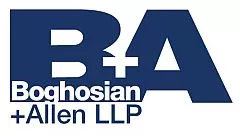- within Litigation and Mediation & Arbitration topic(s)
- with Senior Company Executives, HR and Finance and Tax Executives
- in European Union
- with readers working within the Accounting & Consultancy, Banking & Credit and Insurance industries
- within Litigation and Mediation & Arbitration topic(s)
- with Senior Company Executives, HR and Finance and Tax Executives
- in European Union
- in European Union
- with readers working within the Insurance, Healthcare and Property industries
The Plaintiff was injured at a cycling GrandFondo in Ottawa in 2018, when she attempted (unsuccessfully) to ride over some railroad tracks that crossed one of the roads on the route. She was injured as a result, and sued the organizer of the event damages. At the time of the event, she was volunteering as a ride marshal, rather than a paying participant. The Plaintiff signed a waiver prior to participating in the event.
The Defendant event organizers sought to rely on the terms of the waiver and brought a motion for summary judgment seeking the claim to be dismissed on the basis of the release1. Upon hearing this motion, the Court agreed and dismissed the Plaintiff's claim, ruling that it was barred by the waiver she had signed in advance.
The Waiver
This waiver was emailed to the Plaintiff in PDF format two weeks prior to the event, with instructions to sign it and send it back to GrandFondo Ottawa in advance of the event. The Plaintiff submitted the signed waiver a few days later.
The first paragraph of the waiver stated:
Please read this document carefully before signing. This document has legal consequences and will affect your legal rights, and will limit or eliminate your ability to bring future legal actions.
A little later on in the waiver, under the heading "risks" the waiver provided as follows:
"I HEREBY ACKNOWLEDGE AND ASSUME ALL OF THE RISKS OF PARTICIPATING IN THE EVENT"
The waiver went on to list specific risks associated with Grand Fondos – for example, that this was an event which may test one's physical and mental limits, and has the potential for serious injury or worse due to the course terrain, temperature, equipment failures, behaviour of traffic and other participants. The onus was on participants to remove themselves from the event if they observed anything they felt unsafe, or felt they were unable to safely continue to participate. Both negligence and "gross negligence" were expressly released.
The Plaintiff had expressly admitted that she only "scanned" the waiver, only paying attention to the parts which were in bold type. She had apparently participated in the event the year before and signed a similar waiver then.
Did the Waiver Apply to the Plaintiff?
The Plaintiff's position was that this waiver did not apply as she was a volunteer rather than a paying participant, and that she did not receive any explanation of what this waiver actually was when it was sent to her, such that the waiver was unenforceable.
Williams J., made short work of the argument that this waiver applied to paying participants only, given that the waiver itself made specific reference to volunteers more than once. With respect to the waiver being provided to the Plaintiff without any explanation, Williams J. found that this did not render the waiver unenforceable, on the basis of other cases where the court stated that a person who signs a waiver is presumed to have intended to be bound by it, and that it is not an excuse to say one has not read the waiver. If this were not the law, no-one would ever read any waiver so that they could avoid being bound by it, which in turn would put participants who did not read the waiver in a better position than those who did.
It was also noted that a Defendant relying on a waiver has no obligation to ensure the Plaintiff has actually read a waiver which they have voluntarily signed. The court also noted that the Plaintiff received this waiver 14 days in advance of the event and did not sign and return it for another 8 days, such that she had ample time to read and understand it. Lastly, Williams J noted that the waiver contained, in its very first paragraph, plain language which clearly stated that the waiver should be read carefully, as it limits the legal rights of the person signing. On this basis, Williams J. concluded that the waiver was enforceable against the Plaintiff.
Did the Waiver Cover the Harm Suffered?
Although the Court had concluded that the Plaintiff was bound by the waiver, it was still necessary to consider whether the waiver, based on its wording, barred this particular claim for negligence. The Plaintiffs argued that although the waiver, based on its wording, applied to the "inherent risks of road cycling", when she signed it she implicitly agreed to participate in a properly run and safe charity ride, and that by having the route cross these railroad tracks, which constituted a grossly unsafe road condition, the Defendants fell short of the standard of "a properly run and safe charity ride", with the result that the waiver did not apply. The author, like anyone who cycles in a major Canadian City, notes that as a practical matter, roads are not perfectly smooth, flat and free of hazards, and that as such, railroad tracks are indeed an inherent risk of road cycling in the City.
Williams J notes, in this regard, that the waiver specifically refers to "liability....arising from the negligence or gross negligence" of the entities covered by the release. They went on to observe that in other similar past cases, the courts generally tended to consider whether the language of the waiver in question "brought home to a reasonable reader that liabilities of the type claimed by the Plaintiff" were covered, although any ambiguities would generally be interpreted in the least favourable way to the Defendant, as the person who drafted the release. Moreover, simply including the word "negligence" in a waiver with no context is not sufficient to bar claims for "all possible forms of negligently caused injury". Instead, the word "negligence" must be given sufficient context by the rest of the release so that someone reading the release has a reasonable idea of what they are getting into by participating in the event in question.
In this case, given that the Plaintiff was an experienced cyclist who had participated in this event in the past, Williams J concluded that she ought reasonably to have concluded that the negligence waived under this particular waiver, potentially included hazards on the road surface such as railroad tracks, and that the event organizer could not reasonably have selected a route that was completely hazard-free. Moreover, this waiver contained a provision which placed participants (including, of course, volunteers) under the obligation to become familiar with the event's "route, agenda, rules and regulations". As such it was found that the waiver in question specifically addressed the negligence that caused the Plaintiff's injuries, and ought to be upheld. Specifically, Williams J stated:
"I am satisfied that there was an understanding between Ms. Bernier...and [the Defendants] that [the Defendants] assumed no responsibility for their safety, and that she did not expect them to.
I find that by signing the waiver and participating in the event, Ms. Bernier voluntarily assumed the associated physical and legal risks and that the Plaintiffs' action is barred on this basis"
Takeaways
- It is far preferable to provide the event waiver a few days in advance, rather than the day of the event. Fortunately, this is easily achieved as part of the on-line registration process;
- It will be harder for a returning participant to successfully rely on a release than a first-time participant. Where possible, special care should be taken to ensure first time participants have the opportunity to properly review and understand the waiver;
- While not reading the waiver was no excuse for the Plaintiff in this case, care should still be taken to make sure the waiver is written in concise, plain language with particularly important provisions bolded and/or highlighted, and should state early on that the will affect the signee's legal rights;
- When listing the excluded risks, thought should be given to the specific risks of harm that could reasonably be expected to arise in the course of the activity in question, which should be included explicitly in the waiver. This should involve collaboration between the event organizer, who presumably knows the event best, and the legal professional drafting the release;
- Event organizers are far better off consulting with a legal professional to prepare a release that specifically pertains to their event, rather than "cribbing" something more generic off the internet or from another event.
With respect to this last point, Barry Cox is more than happy to review your event waiver, or help you draft a new one. He can be reached at bcox@boglaw.ca.
Footnote
1.A motion for summary judgment essentially involves a party to litigation going before the court and essentially stating "it is so plain and obvious that the other side does not have a case that we do not actually need a trial, and live witnesses for the court to decide this". A Court will only award summary judgment in the clearest of cases.
The content of this article is intended to provide a general guide to the subject matter. Specialist advice should be sought about your specific circumstances.


